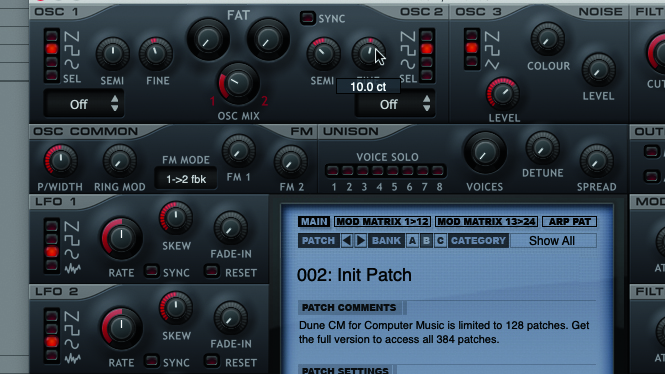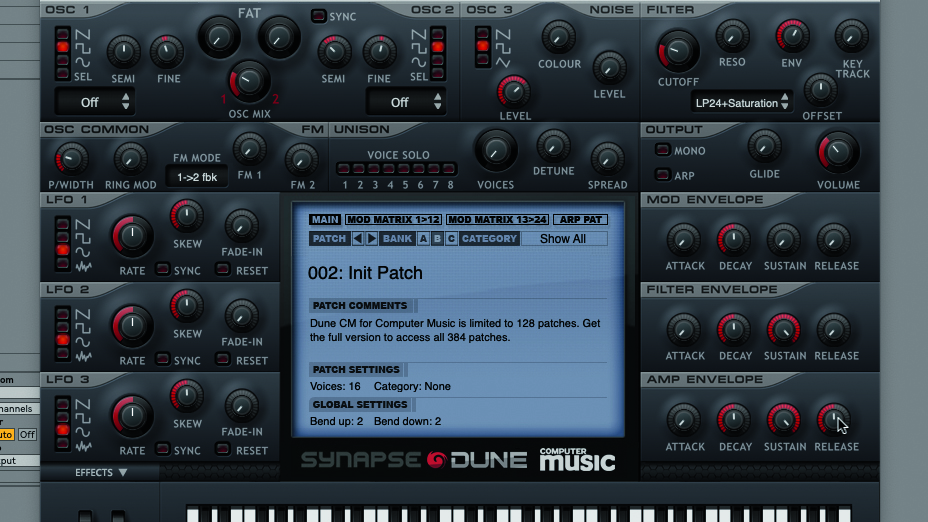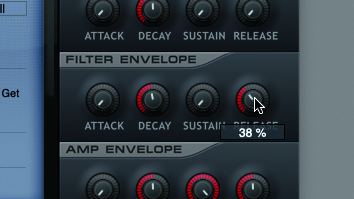The 40 greatest synth sounds of all time, No 16: Ultravox - Vienna
It means nothing to you? We don't believe you!
Ultravox spent the latter part of the 1970s pumping out expertly-crafted - and commercially unsuccessful - post-punk records, emphasising the coming ‘new wave’ of electronic pop.
Guitarist Robin Simon and singer John Foxx left the band after their third album, the latter replaced by Midge Ure. The new lineup recorded their next LP, Vienna, in 1980, although it, too, received a lukewarm reception, only achieving momentum when the title track struck big as a single in 1981.
As a song, Vienna is a slow burn, from contemplative croon to (intentionally) bombastic pseudo-pomp. Piano and violin make up much of the instrumentation, but the Roland CR-78 drum machine is a constant, as is the bass - the sound we're recreating here - from the band’s custom Minimoog. String machines are used for syrupy strings, throughout.

Step 1: Call upon Dune CM to create a reasonable facsimile of Chris Cross’ impactful bass patch. Start with an Init patch and select square waves for all three oscillators. Osc Mix goes to about 29%, and Osc 3 Level to 68%. Set Osc 2’s Semi to -12. Osc 1 and 2’s Fine goes to -10.0 and 10.0, respectively.

Step 2: In Osc Common, P/Width goes to 25%. In the Filter, select LP24+Saturation as the mode. Cutoff goes to 27%, and Env to 60%. In the Amp Envelope, set Decay and Release to 50%. (The original Minimoog shared a single control for both Decay and Release.)

Step 3: Finally, to the Filter Envelope. Here, set Decay at 47% and crank the Sustain down. Our Release should be 38% or so. That brings us very close to the sharp and solid thwack of the original Minimoog sound. You can, of course, fine tune it even further as you like.
Get the MusicRadar Newsletter
Want all the hottest music and gear news, reviews, deals, features and more, direct to your inbox? Sign up here.


Computer Music magazine is the world’s best selling publication dedicated solely to making great music with your Mac or PC computer. Each issue it brings its lucky readers the best in cutting-edge tutorials, need-to-know, expert software reviews and even all the tools you actually need to make great music today, courtesy of our legendary CM Plugin Suite.
“Excels at unique modulated timbres, atonal drones and microtonal sequences that reinvent themselves each time you dare to touch the synth”: Soma Laboratories Lyra-4 review
“A superb-sounding and well thought-out pro-end keyboard”: Roland V-Stage 88 & 76-note keyboards review










